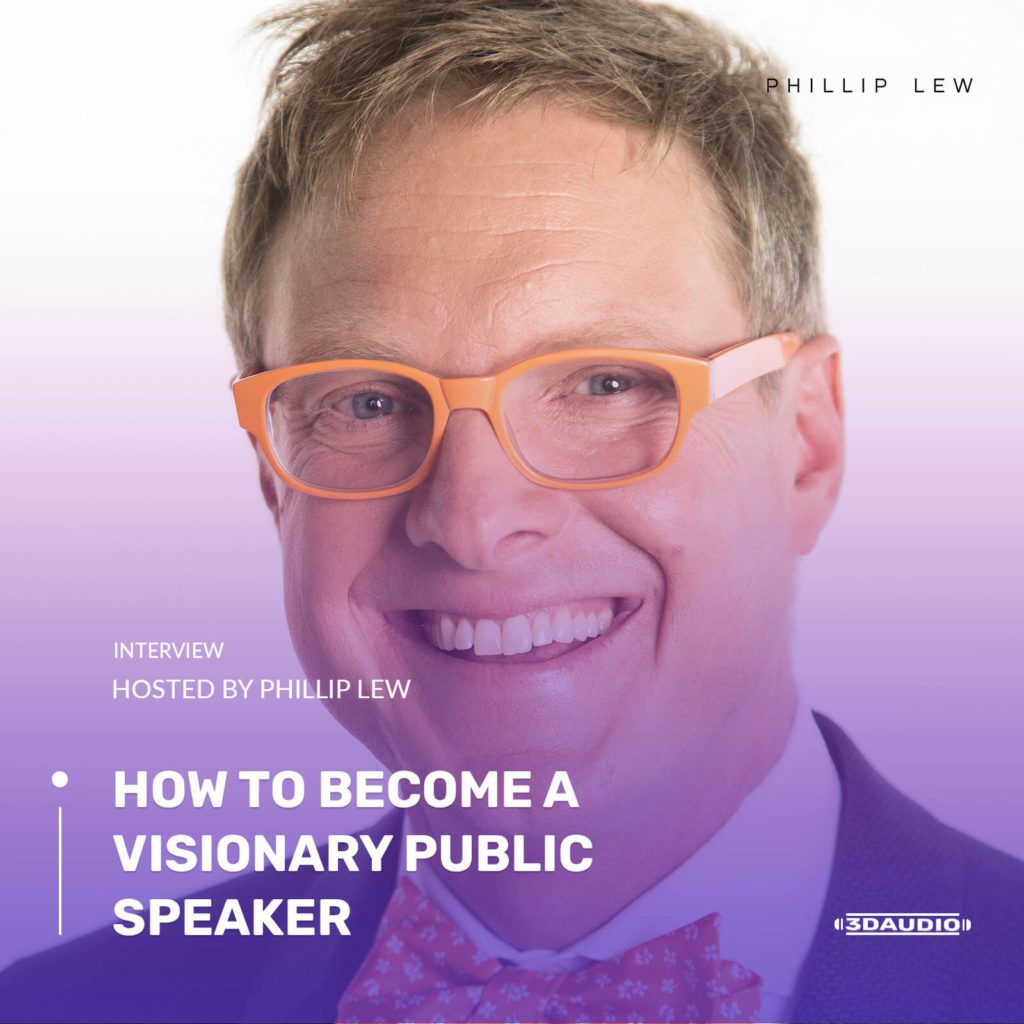
00:00
Paused.
Book Phillip to speak at your next event!
How to become a visionary public speaker
PHILLIP
There are large opportunities all around the world where you can speak directly in front of people that matter the most to you, and share ideas, solutions, and opportunities for change that can help a lot of people. But learning how to succeed as a public speaker can often feel like a mystery. How to develop a winning idea? How do you craft a compelling presentation? How do you speak with power and energize to excite your audience? And how do you get bookings and get paid the kind of money that you want?
In this segment of Innovators, where your future is now, I have decided to invite Andrew Davis to the show. Now, Andrew Davis is a best-selling author and internationally acclaimed key-note speaker.Before building and selling a thriving digital marketing agency, Andrew produced for NBC’s The Today Show, and he’s worked for The Muppets in New York, as well as he worked for Charles Kuralt. He’s appeared in the New York Times, Forbes, and Wall Street Journal, and on NBC and BBC. Davis has crafted documentary films and award-winning content for tiny startups and Fortune 500 brands.
As someone who’s worked for The Muppets, was a childhood actor, writer, documentary story teller, and entrepreneur, my first question was to understand how his unique talents and achievements led to his thinking behind his success and approach to thinking.
ANDREW
And then when I started an agency and even worked in marketing for some startups in the late 1990s, you know, I didn’t know anything about marketing. So, I had to just take what I’d learnt in television and try to apply it, and it turns out, a lot of those things, you know, ended up working in my favor. You know, I think most marketers don’t understand how they need to empathize with the audience and really stop thinking about what they want to accomplish, and instead, think about what the audience wants to accomplish. And next thing you know, you can inspire them to do something they didn’t know they needed.
Well, that’s the same thing that television taught me. And so, when I started an agency and didn’t know anything about running an agency, you know, JimCosco, my business partner and I, we pitched clients the way we used to pitch TV shows. So, you know, we didn’t try to learn how to become an agency. We just used what we knew to try to win business. And it, you know, worked. It was lots of lots of fun, and we learnt along the way.
So, I think today, the way I speak is a product of…or maybe even the way I tell stories is a product of the way I learned how to tell stories in television. The big questions I ask are, you know, a product of a running an agency that was trying to really challenge the way people marketed to the consumers. And so, you know, I think everybody should take more time to think about, not what they’ve done, but what they’ve learned doing what they’ve done, and turning that into the future you.
PHILLIP
Although Andrew was well-known as a public speaker, his topics often involved digital and content marketing. And as someone who has successfully started and sold a digital marketing agency, I wanted to ask Andrew his unique perspective on what it takes to succeed as a digital marketer.
ANDREW
And so, my advice to any digital marketer or agency executive would be to really understand how you focus on driving revenue for the clients you serve. Because, at the end of the day, that’s what marketers need to be challenged to do. And I think the most successful agencies and agency executives and marketers, in general, are not focused on engagement and views and likes and conversation and, you know, visitors and views. They are actually focused on, “How can I increase demand for the products and the services that I’m selling, and what’s the output when it comes to revenue for the exercises and activities I’m doing on behalf of a client?”
And I think that’s really a challenge, but I don’t think it’s as hard as people think. I think when you ask yourself that big question, and say, “Look, even if we do, you know, social media marketing and that’s what we specialize as an agency,” I think if you challenge yourself to say, “Well, how does such social media marketing and the work we do on behalf of our clients actually drive revenue?” You can start, you know, bridging the gap and looking for the opportunity to measure the impact you’re having, and that’s valuable. The, you know, I’ve never seen a client be…an agency be fired because they said they drove a ton of revenue.
PHILLIP
Excited by the idea of how Andrew could hack into the topic of success as a public speaker, I decided to jump right in and ask him what his advice would be for someone starting out the business of becoming a public speaker.
ANDREW
So, you know, if you’re an expert in Facebook advertising or Facebook marketing or social media marketing or content marketing, you know, you’re just a drop in the bucket, and there are tons of other people who are preaching and teaching the same, or very similar, expertise advice out there in the market place. So, if you…and if you feel like you want to become an expert in those fields, you are already kind of going down the wrong path to building, I think, a successful speaking business, or even being a successful speaker because it’s really easy to find that expertise. So stop thinking about being an expert. The world doesn’t need another expert speaker.
I think what you want to do instead is start to ask to ask yourself questions that are…that really drive passion for you. So, I’m just going to stick with the same examples, but… No. Let me [inaudible 00:08:45] for one. If you’re a customer service expert and you know you could speak about customer service and how to be a better customer service, you know, leader or how to run a customer service team, the…what…the question you should ask yourself is what really annoys you about the other advice customer service experts are giving?
And if you start there, from a point of passion, and you start challenging yourself to ask a question that Google can’t answer, you’ll start to find a presentation that isn’t about being an expert, it’s about being a visionary, it’s about challenging the conventional wisdom and actively forming a new approach to the…solving the problem, and that’s where you become a, you know, you really stand out as a thought leader. And it starts with answering those questions or forming a new hypothesis about how to do it.
So, you know, for me, like the…my most successful speech this year, the most [inaudible 00:09:42]speech is called “The Curiosity Gap,” and it’s all about how to earn attention in a very noisy world. And the reason I decided to try to figure out how to solve this problem was everybody was saying that your videos have to be short. Your blog posts have to be short. Your podcasts have to be short, Phillip. And I thought, “Then, well, this is not true. This just bothers me that everybody says this,” and then they have a bunch of stats to back it up. Like, the average YouTube video, you know, that’s uploaded is 2 minutes and 24 seconds, which means you can’t create content that’s longer than 2 minutes and 24 seconds, except we all know that consumers today will binge-watch 2 seasons of Stranger Things on a Saturday, right? Like, that annoyed me.
PHILLIP
ANDREW
PHILLIP
ANDREW
PHILLIP
ANDREW
PHILLIP
ANDREW
PHILLIP
I also found myself totally agreeing with Andrew that our ideas and perspectives are most unique and most insightful when we are immersed in the topics we are most curious and passionate about. So allow yourself throughout the day to ask yourself tough questions about your industry, you product or service, or existing ideas, and allow inspiration and new ideas to sort of find you. And once they do, it’s time to turn them into a game-changing presentation. Now, let’s listen in as Andrew shares how to transform your raw presentation idea into something more polished and ready for the public speaking stage.
ANDREW
Like, you know, if there’s a problem that bothers you, post in on Tweeter as a tweet and see if other people react to it. So, aerate the ideas to see if it’s something that people resonate with. Like, for example, a lot… I’ve been working on a new idea, you know, people… The word “hustle” is, in my opinion, overused in today’s business world. I don’t know if you feel the same way, Phillip. But I see it everywhere, you know, Gary Vee loves to use the word “hustle” and people have kind of adopted it as a really good way to kind of express how hard you’re working.
And so, I didn’t know if it was just me that thinks this way or if it was everybody else. So, I posted on Tweeter, you know, my opinion about the word “hustle,” and all of a sudden, I got, you know, dozens and dozens of people within seconds reacting to that and expressing their same belief that this word bothers them. And immediately I’ve aerated that idea, and I’ve gotten some audience feedback. Does that make sense? So that’s step 1. Immediately try to get some aeration for the idea.
Step two is to start to really amplify the things that are working. Like, you’re trying to gain some traction by simplifying the things that you aerate, and ensuring that the audience is along for the ride with you. And then, also cutting what doesn’t work, that’s the opposite of amplifying. You know, sometimes I get in love with an idea or a story that I’ve shared as a blog post or a video on my video series, you know, but I can tell, if I’m honest with myself, that the audience didn’t love that story or idea as much as I did. And sometimes, you have to kind of kill those darlings and say, “Well, I like the idea. I just haven’t figured out to express it right, or maybe it’s just not an idea that is clearly communicated. Or maybe just the idea’s bad.”
And that key piece to the process is really important. Like, aerating and then amplifying what’s work, and then essentially, going back and doing the cycle again. Like, I’m just gonna try aerate another piece of the puzzle, and don’t think of it from the outset as a speech. Think of it as a series of ideas that you’re gonna work towards seeing if it’s a viable speech. I think a lot of people think, “I’m gonna do a great speech at the next conference.” They slave away on an awesome deck. They rehearse a bunch maybe even, and then they get in there, and as soon as they’re halfway through the presentation, they can even themselves feel like, “Wait a second. I don’t know if that last bit worked,” or, “That story doesn’t really express my idea. I can tell from the questions I’m getting from the audience.” And you can avoid getting in that predicament by kind of doing the homework beforehand.
PHILLIP
I think for Andrew, the answer on finding a great topic through finding your voice and where you’re thinking can create the most impact. At this stage, I wanted to jump right into the [inaudible 00:17:04] presentation format that would be required so that listeners could understand exactly how to deliver a visionary presentation. When I asked this question, I was not disappointed by Andrew’s answer.
ANDREW
The second step is to, kind of, set up the fact that there’s a big way to solve this problem, and here’s what we call it. So, for example, in the curiosity factor, I started by essentially saying, “Hey, man, we hear a lot that we’re told to keep our content short, and there are 2 reasons we are told this. One, we’re told that our audience has an attention span of a gold fish, and we’re told that our audience has no time to consume our content. So, as a result, we make short content, right?”
And everybody’s like, “Yeah, you’re right. This is what we’ve been told.” “Well, there’s a solution to this problem, and the solution is to actually create curiosity gaps.” And they’re like, “Ooh, there’s a solution. This is great.” The next step is to explain what that solution looks like. That doesn’t mean explain the solution, show me what it looks like. If somebody does that, what does it look like? Here’s what a curiosity gap looks like if I tell you the tale of 2 watermelons, which is what I do usually in that part of the presentation.
And then, at that point, they’re like, “This is great. Like, now, show me how,” or, “Teach me how I can leverage what those people did to create my own curiosity gaps, or to solve the problem. And that’s usually 3 to 5 big ideas. It’s not… I think… A lot of people, because they’re stuck in, kind of, that expert-ville world, they’re like, “I’ve got to give you top 10 hacks on how to do , Y, and Z, and they’ve got to be actionable takeaways that somebody can do on Monday.”
And I’m not saying I don’t do that in my presentation, it’s just my actionable takeaways are big questions that I think you should answer, you know, on Monday when you get back to work. So, on Monday, when you’re creating a new piece of content, here are 3 things that you should ask yourself about creating that content, and here are the kinds of things that will help you create a curiosity gap. But it’s not like, you know, go to an SEO tool called whatever and check the key words that are trending, which is what most people think the actionable takeaway should be.
So, basically, break it down like this. Show me the problem, tell me what the big solution is, show me someone who’s actually done it that way, then teach me how to do it in big steps that help me question the work I’m going to do when I get back on Monday. And then at the end, get me to commit to doing what you’re asking me to do
PHILLIP
As I started to get excited, I also thought to myself, “How important is being entertaining?” This led me to ask Andrew the question of how important entertainment a value is in booking top speaking spots.
BRIE
So, fame. For example, if you’re going to hire… Like, on Monday, I’m speaking at this conference where Magic… I’m one keynote speaker, and the other keynote speaker on the same day is Magic Johnson, right? So, Magic Johnson is way more famous than me, obviously. And so, they hired Magic Johnson because they know he’ll deliver a great, you know, experience, but also he’s a recognizable name. So fame is number 1.
The second is entertainment value. Do they deliver, not just a great speech with great information that inspires people or changes their minds, but actually, feels like it’s entertaining and deliver some sort of entertainment value? And the last thing is expertise. And that expertise has a…it’s kind of a double-edged sword, but it’s like are they anexpert in what they’re talking about, is one piece of it. But also, are they an expert and do they understand our industry?
So, you know, I’m speaking in a restaurant leadership conference, can I trust that they understand what it’s like to be a restaurant leader and that they can deliver a message that’s relevant to them? Just as much as I know he’s an expert in curiosity. So those are the, kind of, the 3 things. So, you can tell that from that criteria, entertainment is top of the list. And it doesn’t mean you have to…you need to, like, put on a show or be like Andrew, right?
No one…to be honest, I don’t think that anyone needs a second one of me. My wife would attest to that. She’d be like, “Yeah, we only…we’re good with one.” I think on the other hand, you need… I think the best keynote presenters do a really good job of amplifying what makes their personality unique. So, you can think of it as comedians, you know? Like, not every comedian is the same, you know? Chris Rock has a different style than Kevin Hart who has a different style than Mitch Hedberg.
And I’m sure if you sat down with Mitch Hedbergor Kevin Hart, their personalities are similar, but it’s scaled down when you’re having a beer with those people. So, think of it like that. Whatever your personality is, draw on that and amplify it to find a way to make your speech entertaining, but owned by you and delivered by you. Don’t try to be someone else. And it’s okay to be inspired by other people’s performances, but don’t forget to make it their own.
Like, I work with a guy named MichaelPort, he’s a really good speaker coach. He and his wife run a company called Heroic Public Speaking, and it’s a really great way to learn how to be a great speaker.
And, you know, when Michael gives me some feedback on a speech, and he says, “Maybe you should do it like this,” sometimes, I can see that…I can see what he’s getting at, and I’m like, “Oh, I see where you’re going. I can see that that’s a great idea and that you might do it that way. Let me put my spin on it. I like where you’re going. Let me build on that and try to make it my own.” And it only works for me when I’m capable of making it my own. Does that make sense?
PHILLIP
ANDREW
But really, just, as a manager, being able to ask questions, and then let your team come up with the ideas, the answers, the changes that they want to make, and really involving them in the process can be helpful. Another thing that we found really helpful, especially when these teams are newer, is pairing people up with a buddy. So one of the things with remote work is that it can be really isolating, especially if you’re just starting to do it and you’re brand new to a team and you don’t know anybody else. And bringing those people on and really integrating them into the team is critical to their success.
So, if you’re going to bring on a new remote worker, pairing them up with somebody who’s already been on the team, or it could be somebody at a different team at the company, so they get some exposure to different areas, but giving them kind of a best buddy to start their remote work experience with and this buddy is responsible for, you know, saying hello to them every morning or whatever it might be, that really just makes them feel a part of a team. That can be really beneficial too. And it also helps develop bonds between the workers themselves because they kind of feel responsible for each other, and making sure that everybody’s really cohesive on this team and that they’re working together and they know each other.
But then another thing that we find really helpful is just making space and time for non-work conversation, so you can actually talk about like your life, you know, the things that you might — If you ran into somebody in the hallway, you might say, “Oh, how was your weekend?” You know, “Did you go to the game? Were you away?” And people just get into conversations about what they did. “We went camping. We, you know, cooked a really delicious meal,” or whatever it might be. And you learn more about your coworkers in such a casual way that way. When in a remote environment, you don’t run into people in the hallway, so you have to kind of make purposeful events to talk about that.
So if it’s virtual coffee, where you, you know, say, “Hey, everybody. Let’s meet,” you know, “Bring your beverage of choice and we’ll just sit down and kind of talk about life and what’s going on outside of work.” That can be really helpful too, to just say, “Hey, it’s okay. We can talk about this stuff.”
PHILLIP
ANDREW
I can… You know, my business is based on referrals, so, you know about…over 90% of my speaking gigs are a result of a speaking gig I did before. And so, I’ve built my business just on speaking fees alone, and I charge by the day, so, you know, whether you want me to give a 45-minute keynote, or do a 45-minute keynote plus a breakout session and a book signing and a panel discussion, and, you know…I can’t even think of anything else. Or a workshop, you know, essentially, you’ve purchased me for the day and I’m planning on being there for the day, unless you don’t want me to, so the fee doesn’t really change.
And because it’s a referral-based, I’m always focused on ensuring that at every speech… basically, for me, being a referral-based speaker puts the emphasis on the quality of the speech. It means that I know every single time I’m delivering a speech, if I get some referrals from that, it means I’ve done my job. That they saw the speech, they were so inspired, they believed that I should share my message with their audience. And it helps me from feeling like I need to chase new opportunities all the time.
I know some speakers that don’t have a very heavily referral-based speaking business. They work with a speakers’ bureau, and that speakers’ bureau is constantly out there selling them for new speaking engagements. And that’s an awesome model, it’s just not mine. And, you know, I do do some speakers’ bureau engagements, but, it…you know, I don’t necessarily do a lot of them and which is great for me from a business perspective.
So, I think making sure if you’re going to build a speaker’s business that you know what your model is, is important, but also, remembering that the product, at the end of the day, that you’re selling or…to an audience is the speech. And ensuring that you know how you’re going to measure the quality of your speech is so important because I learned very early on that the only people that come up to you after a speech are the people that think you’re awesome. So you leave every speaking engagement thinking you’re great.
The people that hated you don’t come up and say, “Hey, Andrew, I thought that was the worst keynote presentation ever. I can’t believe that people would ever pay you to come…” They just don’t come and talk to you, those people. So, it’s very easy to get this skewed perspective of the world thinking that everybody loves you and your speeches are great, and it leaved you wondering, “Why don’t I get booked for other speaking engagements?”
So the only way I know how to measure the quality of a speech is am I getting referrals from that speech itself, and can I consistently deliver it so that people know they get a quality presentation each and every time? And do they see that when I’m on stage? Do they sit there thinking, “Wow, this seems like such a great presentation, but I don’t think he could do this ever again.” If they do, that’s not good for me because I know they’re not going to hire me because they’re worried about the consistency and quality of the performance.
And on the same token, you don’t want it to seem so over rehearsed that it doesn’t feel spontaneous and enjoyable to the audience. It just feels like a show that you got paid to put on. So, there’s kind of a delicate balance, but be clear about how you’re goingto measure the quality of your speech, and it doesn’t have to be referrals. You know, if you’re selling from the back of the room, you know, are your sales what you expect, given the quality of your speech? Are you inspiring people to buy, or do you have to actually sell them on buying something? And are you spending more time selling than you are speaking? Well, maybe you need to work on your speech because you could probably inspire people to buy more if you worked harder on the speech.And I’m not saying that’s the case, I’m just saying, think about that.
PHILLIP
ANDREW
You know, I don’t want to go to an audience of 3000 and deliver a speech I just worked on for the first time and I just rehearsed in my hotel room, and I’ve never shared with an audience. But I will do that for an audience of 150 people that I know maybe already likes me, or they see me speak before and they want some new insider information, and I’ll try a new 5 minutes within a speech I know that works, and I’ll build a whole new presentation by just aerating small bits with new audiences. Does that make sense so far?
PHILLIP
ANDREW
Start with that so…because at the point at which you get a referrable speech, then your business will start to move. And you don’t have to worry about trying to fill out speaker request forms online and stuff like that, which can be a huge waste of time. Instead, you can get it to the point where you’re at 1 of those events, and as soon as somebody comes up after you speak and say like, “Oh my gosh, that was so good. I would love to have you come to our company and deliver that speech,” you’ve just hit on a referral. You’ve just identified that that speech is getting to the point that it’s good enough that other people want to have you speak, and that’s when you can start building a real business.
And just remember, it’s about the speech, not about you or how famous you are at that point, and that’s the key. Like, eventproducers buy the speech, the idea and you, kind of in that order when you’re not a famous person.
PHILLIP
ANDREW
So, most people that are great at booking lots and lots of breakout sessions, but not getting keynote presentations, the real problem is that they’re stuck in the expert-ville. You know, they’re great at giving that speech about creating a great email campaign, but they’ve never gotten to the point where they’ve evolved out of being an expert and becoming a visionary.
One of the easiest ways to do this for yourself is think about where you would want to speak. Go online, look at the speaking topics from last year. And what I want to challenge everybody to do is just look down the list of breakout sessions and it’s…you can very quickly see that all breakout sessions, the vast majority of them are expert talks. It’s like, “How to do this,” “Five things to do that,” “Become a this,” “Do this.” It’s like I’m giving my expert advice.
But then, just go look at the keynotes for that event, whether there’s 4 or 6 or 8 keynotesin the course of a few days, read those keynote session descriptions and you’ll see a vast difference, right? And like ShepHyken’s a good example, you know. Shep could and used to give breakout sessions about, you know, customer service ideas to help your business; 3 things that will transform your customer service team, right?
But now, his speeches are about the convenience revolution, you know, and that’s a big idea and it’s a new concept and it helps create…you know, big loyalty in your customers. And it’s disrupting the competition. That is not a breakout session type of speech.
So, there are 2 things you need to focus on. One, are you entertaining enough if you have a big idea, and if you don’t have a big enough idea, get the big idea to get the keynotes. And by the way, that means doing breakout sessions that you want to deliver, instead of the breakout sessions they want you to deliver. Especially, if you’ve been booking a lot of breakout sessions, the next one you get, say, “Hey, look, I’d love to do a breakout session.” And when they say, “Well, can you do your top 10 email tips?” You should say, “Hey,” you know, “look, I’m happy to give some tips during my presentation, but I have a new idea I’ve been working on. I think the audience will really love it. They’ll still get the actionable insight they need, but here’s my new topic and I’d be happy to do that topic.”
PHILLIP
ANDREW
And what they’re doing there is taking 2 brands where the audience should or might have an affinity for each other, and bringing them together to create concepts that would help both businesses grow. So, T-Mobile is promoting on T-Mobile Tuesdays that you can go to Taco Bell and get a free Taco, and we all know that no one goes to Taco Bell and just gets 1 Taco, right? So, you get a free Taco and you buy a bunch of stuff.
Meanwhile, Taco Bell is saying, “Hey, you can go to T-Mobile and get a free Taco every Tuesday if you have a T-Mobile phone.” And people were like, “I didn’t know that.” So now I’m thinking about T-Mobile instead of any other carrier. The idea is to really leverage the power of your audience, instead of paying for reach. Like, instead of buying ads to get people on, you know, Facebook or on television or wherever, can you ask yourself 1 simple question: “Who has my next customer as their current customer?”
And if you just ask yourself that question, you started thinking, “Hey, how can I partner with X, Y, and Zbecause they already have customers that would be my customer and vice versa? How can I help them leverage my customer database or my customers to build their business, and what could we do to inspire those people to buy from us?”
PHILLIP
Since the birth of the internet, now with emerging technologies like VR and cloud streaming, there is an accelerating momentum of new ways to engage, connect, and share information with people all around the world. Don’t let inaction hold you back any longer. It’s time to shine. To leave you with a quote, “Our deepest fear is not that we are inadequate. Our deepest fear is that we are more powerful beyond measure.”
Thanks for listening to this episode of Innovators, where your future is now. My name is Phillip Lew, your host. And thanks for listening as we bring you, the listener, on a journey from panic to power.
OTHER PODCAST EPISODES WE THINK YOU’LL LOVE
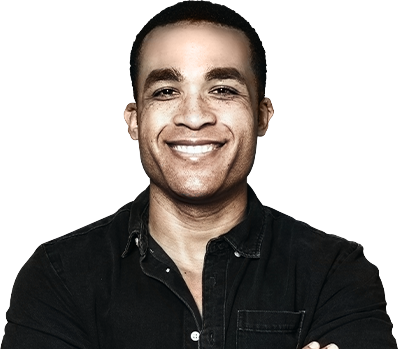
About Phillip lew
Phillip Lew is the host of Innovators, a podcast audio experience that decodes the mysteries of exponential technology and the coming singularity. Phillip Lew is also the CEO of C9 Staff—the #1 firm specializing in deploying remote staffing teams for clients across 9 core industries.



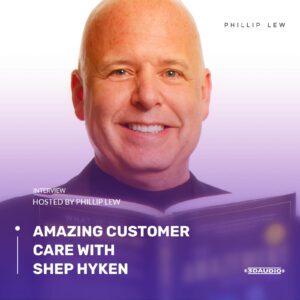
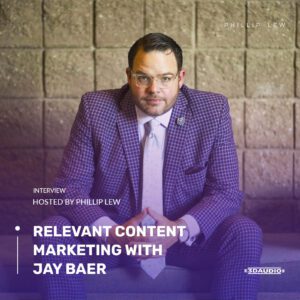

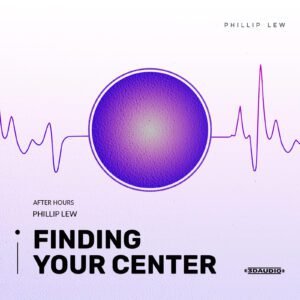
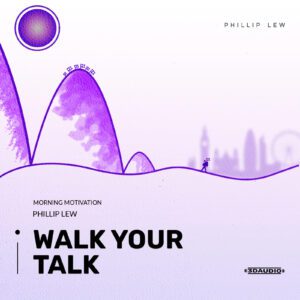
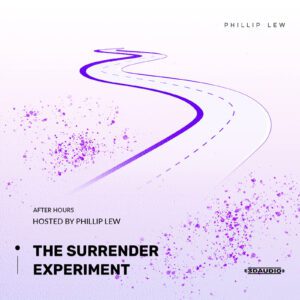
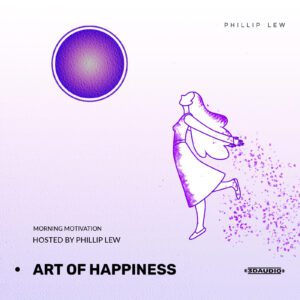


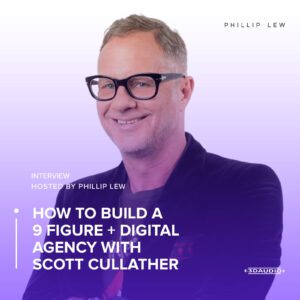
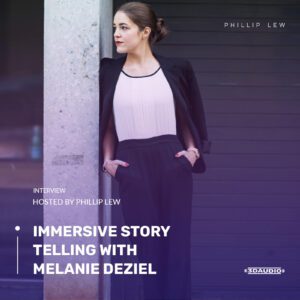
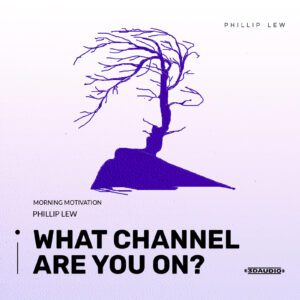
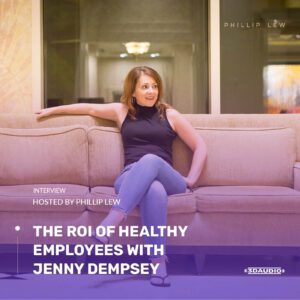
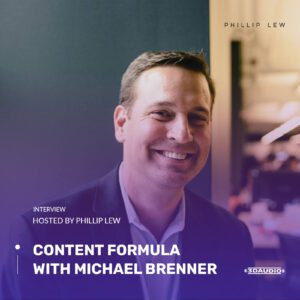
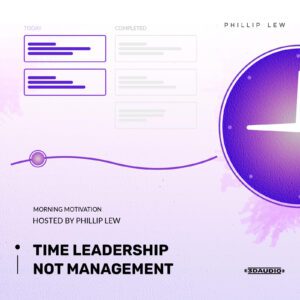
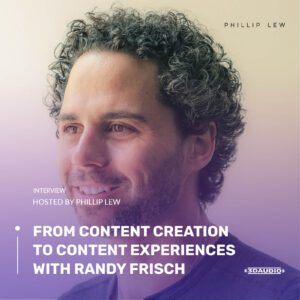
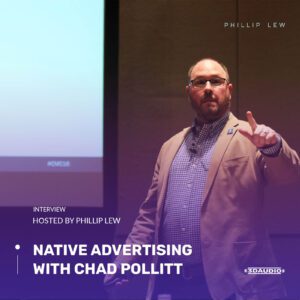

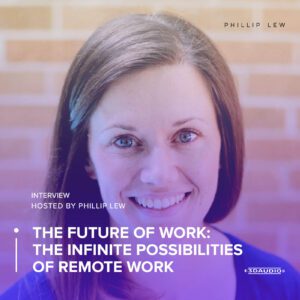
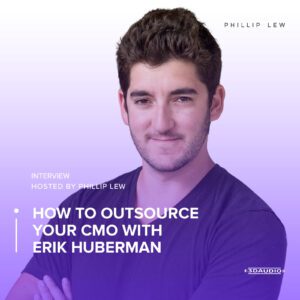
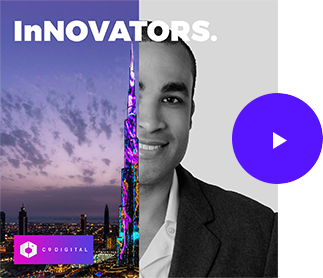

0 Comments